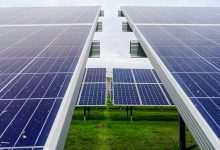The Australian clean energy sector has raised serious concerns about proposed new national security laws, saying that even relatively small solar and wind projects could captured by new cybersecurity laws and restrictions on overseas investors.
The Department of Home Affairs has proposed new national security laws on a wide range of energy sector infrastructure, including investments in electricity generation, gas and network infrastructure.
Under the proposed laws, operators of critical infrastructure would be required to implement new cybersecurity controls, including to requirements to report potential cybersecurity breaches and risk management measures to the Department of Home Affairs, and to disclose information to a Register of Critical Infrastructure Assets.
More significantly, the proposed changes are likely to link new definitions of ‘critical energy sector assets’ to additional reforms under a Foreign Relations Bill currently before the parliament, which would provide powers to the federal treasurer to impose conditions on foreign investors funding new Australian energy projects, and could force foreign investors to divest from Australian infrastructure.
The Australian energy sector fears the new laws will impose significant new regulatory burdens on relatively small wind, solar and storage projects, while also creating substantial investment risk for overseas-based investors that could ultimately stifle new investment in Australian energy projects.
In a submission responding to the exposure draft of the national security bill, the Clean Energy Council raised concerns that the threshold for what will be considered a ‘critical electricity asset’ was too low, with any project above 30 megawatts in size potentially captured by the proposed laws.
“A 30MW generator is a very small utility-scale electricity system and we consider it too small to be included within the definition of a ‘critical infrastructure asset’,” the Clean Energy Council submission says.
“The breach, outage or failure of such a system would not pose any material risk to the stability of the system or supply to consumers, nor is it likely to impact social or economic wellbeing, or national security.
“In circumstances where investors are not dissuaded, the proposed changes will at the very least create delay in the investment process and add complexity to an already challenging regulatory environment.
“In particular, the proposed ‘call-in’ and ‘last resort’ powers have the potential to create significant uncertainty and long-term transaction risk for both investors and developers. In that regard, clear guidelines as to when the ‘call-in’ power will be exercised would be necessary in providing a higher degree of investor confidence,” the Clean Energy Council adds.
“These outcomes are undesirable in a climate where significant amounts of new investment are required in Australia’s essential energy infrastructure – much of which needs to be sourced from overseas.”
In its own submission, Alinta Energy, now owned by Hong Kong-based Chow Tai Fook Enterprises, argued that Home Affairs was seeking to imposed new national security laws on power stations that represented a minimal risk to the operation of Australia’s electricity markets.
“Intermittent solar and wind generation facilities vary in size and location across the NEM and WEM. These facilities may be semi-scheduled by AEMO but are not fundamental to power system security and reliability (without significant battery storage),” the Alinta Energy submission says.
“These facilities will also often exceed a 30MW or 10MW threshold. They may therefore be subject to additional regulatory costs without any commensurate benefit to the operation and security of power system generally.”
The same argument was echoed by the Australian Energy Council, which suggested that the 30-megawatt threshold, which is based the Australian Energy Market Operator’s requirements for participation in the National Energy Market, was not an appropriate indicator of a project’s significance in terms of national security.
“While 30MW is the threshold below which the AEMO will automatically grant a generator registration exemption, this is for unit dispatch and pricing purposes, and is not pertinent to whether a cyberattack on the generator would have widespread grid impacts,” the Australian Energy Council said.
“Interference to the operation of units of 30MW in size is unlikely to have significant effects on the stability and security of the power system. Instead, the Energy Council suggests that the threshold should be measured across a power station rather than a unit, and consequentially much larger threshold would be more suitable for the proposed framework.”










